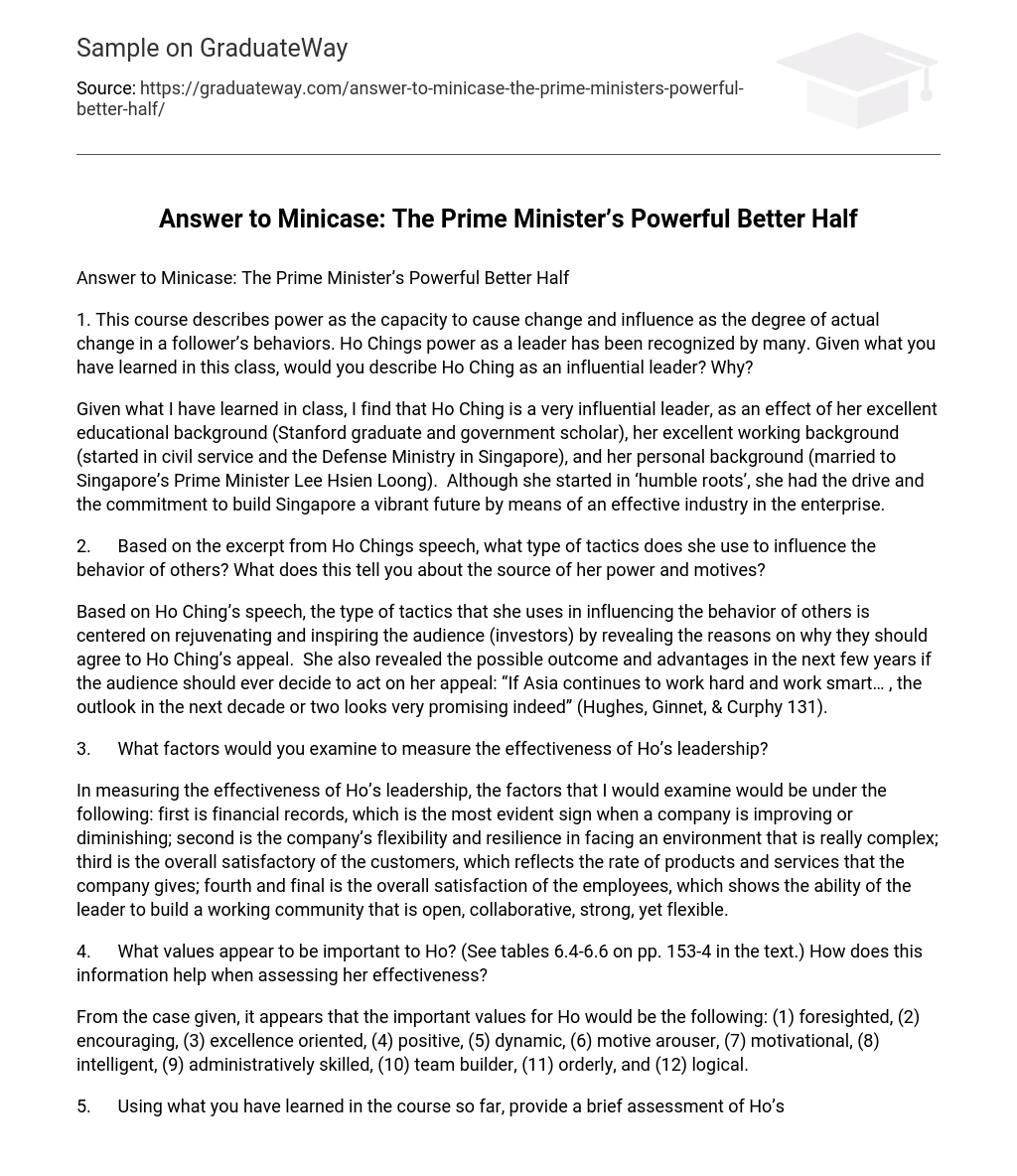This course describes power as the capacity to cause change and influence as the degree of actual change in a follower’s behaviors. Ho Chings power as a leader has been recognized by many. Given what you have learned in this class, would you describe Ho Ching as an influential leader? Why?
Given what I have learned in class, I find that Ho Ching is a very influential leader, as an effect of her excellent educational background (Stanford graduate and government scholar), her excellent working background (started in civil service and the Defense Ministry in Singapore), and her personal background (married to Singapore’s Prime Minister Lee Hsien Loong). Although she started in ‘humble roots’, she had the drive and the commitment to build Singapore a vibrant future by means of an effective industry in the enterprise.
Based on the excerpt from Ho Chings speech, what type of tactics does she use to influence the behavior of others? What does this tell you about the source of her power and motives?
Based on Ho Ching’s speech, the type of tactics that she uses in influencing the behavior of others is centered on rejuvenating and inspiring the audience (investors) by revealing the reasons on why they should agree to Ho Ching’s appeal. She also revealed the possible outcome and advantages in the next few years if the audience should ever decide to act on her appeal: “If Asia continues to work hard and work smart… , the outlook in the next decade or two looks very promising indeed” (Hughes, Ginnet, & Curphy 131).
What factors would you examine to measure the effectiveness of Ho’s leadership?
In measuring the effectiveness of Ho’s leadership, the factors that I would examine would be under the following: first is financial records, which is the most evident sign when a company is improving or diminishing; second is the company’s flexibility and resilience in facing an environment that is really complex; third is the overall satisfactory of the customers, which reflects the rate of products and services that the company gives; fourth and final is the overall satisfaction of the employees, which shows the ability of the leader to build a working community that is open, collaborative, strong, yet flexible.
What values appear to be important to Ho? (See tables 6.4-6.6 on pp. 153-4 in the text.) How does this information help when assessing her effectiveness?
From the case given, it appears that the important values for Ho would be the following: (1) foresighted, (2) encouraging, (3) excellence oriented, (4) positive, (5) dynamic, (6) motive arouser, (7) motivational, (8) intelligent, (9) administratively skilled, (10) team builder, (11) orderly, and (12) logical.
Using what you have learned in the course so far, provide a brief assessment of Ho’s leadership strengths and weaknesses and her overall effectiveness.
Ho’s leadership strengths can be reflected on her being an influential leader with excellent educational, working, and personal backgrounds. She has been committed to excel in her work, as she tries to influence and motivate others. She has had the foresight to see what the future can bring. Even her tendency to push forth what she believes in would land under her leadership strengths. However, it would also be negative to always stand against other people. Her weakness lands on her inability to consider other ideas, which would prevent growth in mind and intellect.
References
- Hughes, R.L., Ginnet, R.C., & Curphy, G.J. (2005). Part 2: Focus on the leader. Leadership: enhancing the lessons of experience. Columbus, OH: McGraw-Hill/Irwin.





